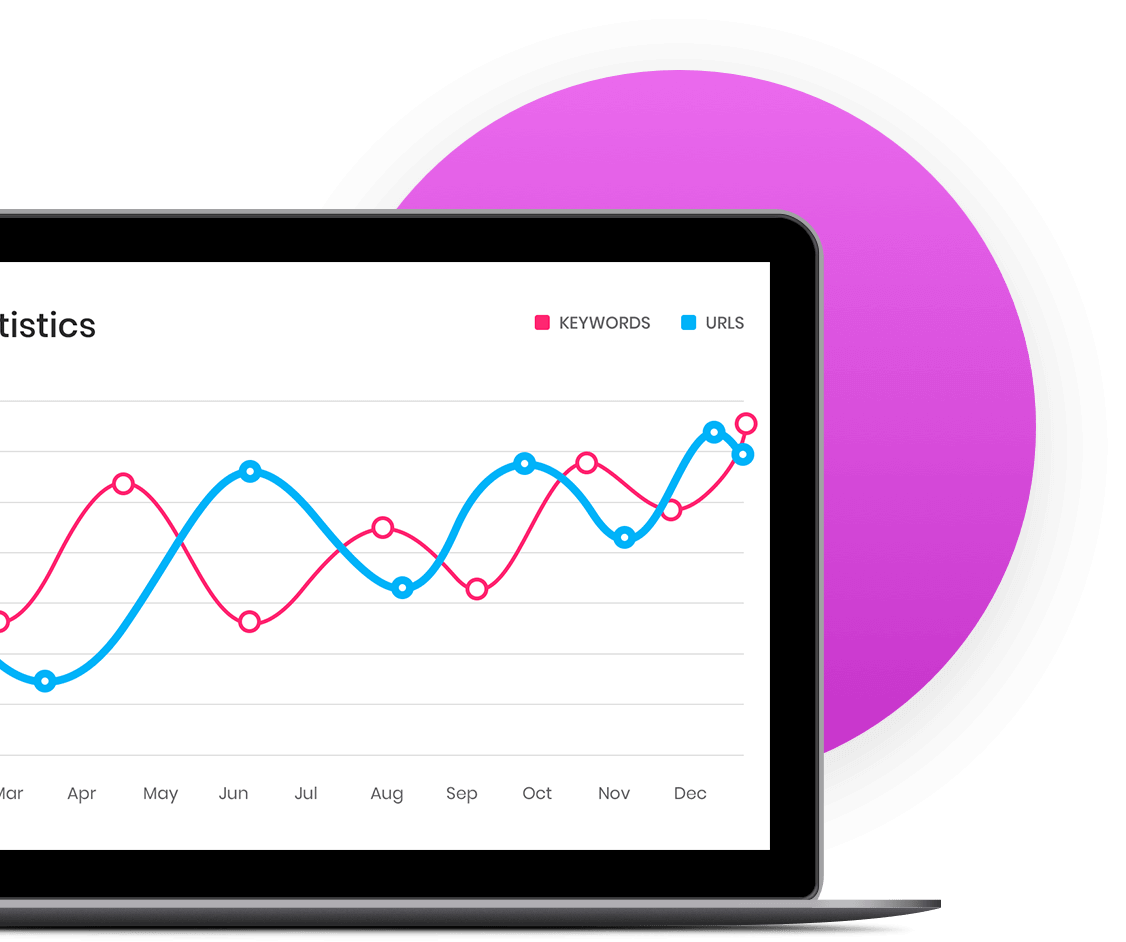The General Data Protection Regulation (GDPR) is a crucial law for data privacy in today’s digital world. It changes the way businesses manage personal information, which has a big impact on how they do email marketing.
Email marketing is still an effective way for businesses to reach out to their customers, find potential clients and boost sales. However, with the introduction of GDPR, there are now new rules in place that require companies to rethink their approach to email marketing and put strong measures in place to protect people’s data.
If you’re a business that uses email campaigns as part of your marketing strategy, it’s absolutely necessary for you to understand GDPR. This regulation sets out specific requirements that you must follow:
- Be transparent about how you collect data
- Obtain clear consent from individuals
- Implement secure systems for storing data
- Regularly update your privacy policy
While these requirements may seem daunting at first, they actually provide an opportunity for you to earn the trust of your audience by handling their data responsibly. By fully embracing GDPR compliance, companies can build stronger connections with their subscribers and run more successful email marketing campaigns.
Achieving GDPR compliance will require careful planning and execution on your part. However, the benefits of staying legally compliant while also running effective email marketing campaigns make this effort worthwhile.
What You Need to Know About GDPR and Email Marketing
The General Data Protection Regulation (GDPR) is a comprehensive data protection framework implemented by the European Union in May 2018. It establishes strict guidelines for organisations handling personal data, which has significant implications for email marketing practices.
The Purpose of GDPR
At its core, GDPR aims to:
- Strengthen individuals’ control over their personal data
- Harmonise data protection laws across EU member states
- Modernise data protection for the digital age
- Protect EU citizens from privacy breaches
What Constitutes Personal Data Under GDPR?
The regulation defines personal data as any information relating to an identified or identifiable natural person. This includes:
- Names and email addresses
- Location data
- IP addresses
- Cookie identifiers
- Device IDs
Who Does GDPR Affect?
GDPR’s reach extends beyond EU borders, affecting businesses worldwide that:
- Operate within the EU
- Offer goods or services to EU residents
- Monitor EU residents’ behaviour
- Process EU citizens’ personal data
Consequences of Non-Compliance
Non-compliance with GDPR can result in substantial penalties:
Organisations can face fines up to €20 million or 4% of annual global turnover, whichever is higher
Key Requirements of GDPR for Email Marketers
For email marketers, GDPR introduces specific requirements around:
- Consent Collection: Clear, specific and freely given
- Data Processing: Transparent and lawful
- Data Storage: Secure and time-limited
- User Rights: Access, rectification and erasure
Applicability of GDPR to Email Marketing
The regulation applies to both B2B and B2C email marketing, requiring businesses to maintain detailed records of data processing activities and implement appropriate security measures. This includes protecting against unauthorised access, accidental loss and ensuring data accuracy.
Implications for UK Businesses Post-Brexit
UK businesses must note that post-Brexit, GDPR principles remain applicable through the UK GDPR and Data Protection Act 2018, maintaining alignment with EU data protection standards.
Key Principles of GDPR That Impact Your Email Marketing Practices
GDPR establishes essential principles that directly shape how businesses conduct email marketing campaigns. These principles create a framework for responsible data handling whilst protecting individual privacy rights.
1. Transparency in Data Collection
- Clear communication about data usage
- Specific details on how personal information will be processed
- Plain language explanations of data handling practices
- Regular updates to privacy policies
2. Data Minimisation Requirements
- Collection of only necessary personal data
- Removal of excessive or irrelevant information
- Regular audits of stored customer details
- Strict purpose limitation for data usage
3. Storage Limitation Guidelines
- Defined retention periods for customer data
- Regular database cleaning protocols
- Automated deletion of outdated information
- Documentation of data storage decisions
The Right to be Forgotten stands as a cornerstone principle, granting individuals control over their personal information. This right requires businesses to:
- Delete customer data upon request
- Remove information from all marketing databases
- Confirm deletion to the requesting individual
- Update associated third-party processors
These principles create specific obligations for email marketers, such as those offered by Alloy Marketing, which include:
- Regular database maintenance
- Updated privacy notices
- Streamlined deletion processes
- Accurate record-keeping systems
Implementing these principles requires robust technical solutions:
- Automated data management systems
- Privacy-focused email marketing platforms
- Secure data storage solutions
- Regular staff training programmes
Business benefits of adhering to these principles include:
- Enhanced customer trust
- Improved data quality
- Reduced storage costs
- Better campaign targeting
These foundational principles shape how businesses approach email marketing, creating a framework that protects both individual rights and business interests.
Building a GDPR-Compliant Email List: Consent Management Strategies That Work
Creating a GDPR-compliant email list requires robust consent management strategies. The cornerstone of compliance lies in obtaining explicit, informed consent from subscribers through transparent opt-in mechanisms.
Essential Elements of GDPR-Compliant Opt-in Forms:
- Clear, specific purpose statements explaining how data will be used
- Separate consent checkboxes for different marketing activities
- No pre-ticked boxes or assumed consent
- Direct language avoiding legal jargon
- Visible privacy policy links
- Easy-to-understand withdrawal options
Documenting Consent for Compliance
Each consent record must capture:
- Timestamp of consent
- Source of consent (specific form or campaign)
- IP address
- Copy of the exact consent text shown
- Method used to obtain consent
- Record of any consent updates or withdrawals
Businesses must implement systems to store these consent records securely. A centralised consent management platform helps track permissions across multiple marketing channels while maintaining detailed audit trails.
Practical Implementation Tips
- Design double opt-in processes requiring email confirmation
- Create preference centres allowing subscribers to manage their consent settings
- Regular audits of consent records to ensure data accuracy
- Automated systems for consent expiration and renewal requests
- Integration with CRM systems for real-time consent tracking
A well-structured consent management strategy protects both businesses and subscribers. By implementing these practices organisations demonstrate commitment to data protection while building trust with their audience through transparent email marketing practices.
Understanding the Rights of Your Email Recipients Under GDPR
GDPR grants email recipients specific rights regarding their personal data, creating clear obligations for marketers to respect and implement these rights in their email marketing practices.
Essential Rights Under GDPR:
- Right to Object: Recipients can object to processing their data for marketing purposes at any time
- Right to Access: Individuals can request copies of their personal data
- Right to Rectification: Recipients can demand correction of inaccurate information
- Right to Erasure: Subscribers can request complete deletion of their data
- Right to Data Portability: Users can obtain and reuse their personal data
Each unsubscribe request requires immediate action. The GDPR mandates that marketers process these requests without undue delay, typically within one month of receipt. This timeframe applies to all data subject rights requests.
Practical Implementation Requirements:
- Include clear unsubscribe options in every marketing email
- Maintain accessible preference centres for subscribers
- Process unsubscribe requests within 30 days
- Keep detailed records of all rights requests
- Train staff to handle data subject requests properly
These rights empower email recipients with control over their personal data. Marketers must implement robust systems to handle rights requests efficiently, ensuring compliance while maintaining positive relationships with their email subscribers.
Ensuring Data Security in Your Email Marketing Campaigns: Technical Measures for Compliance
GDPR compliance requires strong technical measures to protect personal data in email marketing databases. These security measures create a protective barrier around your subscribers’ information.
Essential Security Protocols:
- Encryption at Rest: Implement strong encryption for stored data using industry-standard algorithms.
- Transport Layer Security (TLS): Secure data transmission between servers and client devices.
- Access Controls: Restrict database access to authorised personnel through multi-factor authentication.
- Regular Security Audits: Schedule periodic assessments of security protocols and vulnerabilities.
Pseudonymisation is crucial for data protection as it replaces identifiable information with artificial identifiers. This process keeps the data usable while minimising risks in case of breaches.
Recommended Pseudonymisation Techniques:
- Tokenisation of customer identifiers
- Data masking for sensitive fields
- Separation of personal data from marketing analytics
Your email marketing platform should have built-in security features:
- Automated backup systems
- Real-time threat monitoring
- Secure API integrations
- Data breach detection tools
These technical measures need regular updates to tackle new threats. Collaborating with IT security experts ensures your email marketing system stays GDPR compliant while safeguarding valuable customer data.
Adapting Your Email Marketing Strategies Post-GDPR Implementation: Challenges and Opportunities
GDPR has reshaped email marketing practices, creating both challenges and opportunities for businesses seeking qualified leads. The regulation’s impact on list building and segmentation strategies requires marketers to adopt innovative approaches.
Strategic List Building
- Implement double opt-in processes
- Create value-driven lead magnets
- Design transparent data collection forms
- Maintain detailed consent records
- Regular list cleaning and validation
The shift towards quality over quantity in email lists has proven beneficial for engagement rates. Businesses report higher open rates and click-through rates with GDPR-compliant lists, as subscribers are genuinely interested in receiving communications.
Smart Segmentation Under GDPR
- Use declared data from opt-in forms
- Segment based on explicit consent categories
- Track engagement levels for targeted content
- Apply preference centre data for personalisation
The challenge of balancing lead generation with compliance has sparked creative solutions. Marketers now focus on:
- Creating compelling opt-in incentives
- Developing targeted content strategies
- Building trust through transparency
- Implementing automated compliance checks
- Regular audience engagement analysis
These adaptations have led to more sophisticated marketing approaches. Companies that embrace GDPR requirements often discover improved audience insights and stronger customer relationships. The focus on explicit consent and precise targeting has resulted in more efficient campaigns and better-qualified leads.
Case Study: Alloy Marketing’s Client-Focused Approach to GDPR-Compliant Email Campaigns
Alloy Marketing’s success in navigating GDPR compliance stems from its foundational commitment to transparency and measurable results. With over 11 years of industry experience, the agency has developed a robust framework that places client needs at the forefront while maintaining strict data protection standards.
Key Elements of Alloy’s GDPR-Compliant Strategy:
- Transparent Data Collection: Clear documentation of consent mechanisms and data processing activities
- Regular Compliance Audits: Systematic review of email marketing practices across client campaigns
- Customised Privacy Solutions: Tailored approaches for different business sectors and audience types
The agency’s work with a mid-sized e-commerce client demonstrates this approach in action. Facing declining engagement rates post-GDPR, the client partnered with Alloy to revamp their email marketing strategy. Through implementing granular consent options and personalised preference centres, the campaign achieved:
- 27% increase in opt-in rates
- 35% improvement in engagement metrics
- Zero compliance issues reported
Alloy’s adaptive strategy extends across various sectors, from SMEs to large franchises. Each client benefits from:
- Sector-specific compliance frameworks
- Custom-built consent management systems
- Real-time tracking of consent status
- Automated compliance documentation
This client-focused approach has proven particularly effective in highly regulated industries. A financial services client maintained full GDPR compliance while achieving a 42% increase in qualified leads through precisely targeted email campaigns.
The agency’s success demonstrates how GDPR compliance can enhance rather than hinder marketing effectiveness when integrated into a comprehensive digital marketing strategy. Offering services like SEO for better rankings and measurable growth, PPC for targeted Google Ads campaigns and a detailed CRM setup service to improve customer conversion and satisfaction, Alloy Marketing is well-equipped to help businesses thrive.
Practical Tips for Maintaining Ongoing Compliance in Your Email Marketing Efforts Under GDPR Rules
Maintaining GDPR compliance requires a systematic approach and regular monitoring of your email marketing practices. Here’s a practical compliance checklist to keep your campaigns aligned with regulations:
Regular Audit Schedule
- Conduct monthly reviews of consent records
- Update privacy policies every quarter
- Test unsubscribe mechanisms weekly
- Review data retention periods bi-annually
- Document all compliance activities
Essential Technical Measures
- Implement double opt-in processes
- Set up automated data deletion schedules
- Create secure backup systems
- Install encryption protocols
- Establish breach notification procedures
Team Collaboration Framework
- Schedule monthly meetings between marketing and legal teams
- Create shared compliance documentation
- Establish clear roles and responsibilities
- Set up communication channels for quick issue resolution
- Maintain training logs for team members
A robust compliance strategy involves creating dedicated roles within your organisation. Assign a Data Protection Officer (DPO) or compliance manager to oversee email marketing activities. This person serves as the bridge between marketing initiatives and legal requirements.
Quick Response Protocol
- Create templates for data subject requests
- Set up automated acknowledgement systems
- Establish 72-hour response windows
- Maintain detailed request logs
- Review response effectiveness quarterly
Successful GDPR compliance relies on proactive monitoring rather than reactive measures. Build compliance checks into your campaign planning process, ensuring each new initiative undergoes thorough assessment before launch. Regular staff training sessions keep team members updated on the latest GDPR developments and best practices.
Conclusion
GDPR compliance isn’t a one-time achievement – it’s an ongoing commitment to responsible data handling and customer trust. Businesses that embrace these regulations create stronger relationships with their audience whilst maintaining effective email campaigns.
The path to compliance brings valuable opportunities:
- Building authentic connections through transparent data practices
- Developing high-quality, engaged email lists
- Creating targeted campaigns that respect user privacy
- Establishing trust as a cornerstone of customer relationships
Staying informed about GDPR developments helps businesses avoid penalties whilst fostering meaningful engagement with subscribers. The future of email marketing lies in balancing promotional goals with data protection – a strategy that benefits both businesses and customers alike.
Remember: GDPR-compliant email marketing isn’t just about following rules – it’s about demonstrating respect for your subscribers’ privacy and earning their trust through ethical practices. This approach creates sustainable, long-term success in your email marketing endeavours.
In addition to these practices, implementing local SEO strategies can further enhance your online visibility and customer engagement.
FAQs
What is GDPR and why is it important for email marketing campaigns?
The General Data Protection Regulation (GDPR) is a comprehensive data protection law aimed at safeguarding personal data of EU residents. It is crucial for businesses using email marketing as it sets strict rules on how personal data should be collected, processed and stored, ensuring transparency and consent. Understanding and complying with GDPR enables businesses to continue leveraging email marketing effectively while respecting user privacy.
How does GDPR affect the way I build my email marketing list?
Under GDPR, building a compliant email list requires obtaining explicit, informed consent from recipients through opt-in mechanisms that meet regulatory standards. Businesses must document this consent as proof for audits and ensure that they collect only necessary data (data minimization), maintaining transparency about how the data will be used.
What rights do email recipients have under GDPR?
Email recipients have several rights under GDPR including the right to unsubscribe or opt out from marketing communications at any time, the right to access their personal data and the ‘right to be forgotten’ which allows them to request deletion of their data. Marketers are obligated to honor these rights promptly to remain compliant.
What technical measures should I implement to secure personal data in my email marketing campaigns?
To comply with GDPR’s data security requirements, marketers should adopt technical safeguards such as encryption and pseudonymisation of personal data within their databases. These measures help protect customer information from unauthorized access and potential breaches, thereby maintaining data integrity and confidentiality.
How has GDPR changed email marketing strategies post-implementation?
Post-GDPR, marketers have adapted by focusing on targeted marketing strategies that prioritize qualified leads obtained through compliant consent processes. This shift balances lead generation goals with regulatory compliance challenges, emphasizing transparency and respect for user privacy in segmentation and campaign design.
What are best practices for maintaining ongoing GDPR compliance in email marketing?
Maintaining ongoing compliance involves regular audits of consent records and privacy policies, updating opt-in mechanisms as needed and fostering collaboration between marketing teams and legal or compliance experts. Adhering to a compliance checklist ensures responsible data handling, helps avoid penalties and supports effective, trustworthy email campaigns.






